Two political prisoners sentenced to death as Iran’s execution rate soars
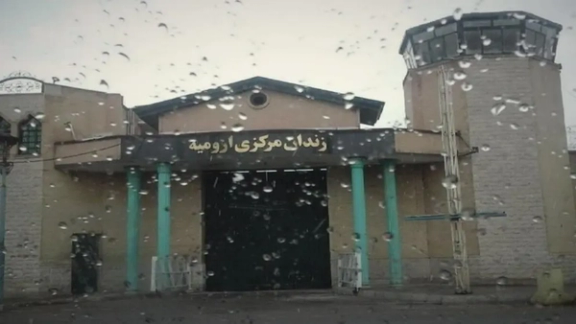
Two Iranian political prisoners have been sentenced to death by the Revolutionary Court in Urmia in separate cases.

Two Iranian political prisoners have been sentenced to death by the Revolutionary Court in Urmia in separate cases.
The sentences for Mehran Hasanzadeh and Hamid Abdollahzadeh add to growing concerns over the escalating use of capital punishment against political dissidents in the country.
Hasanzadeh, a resident of Oshnavieh, was convicted on charges of rebellion (Baghi), a capital offense under Iran's Islamic law.
According to HRANA human rights organization, the charge stemmed from an accusation of killing a member of the Basij paramilitary force.
“Mehran has been accused of killing a Basij member, which ultimately led to the charge of rebellion and the issuance of the death sentence against him,” a source familiar with the case told HRANA.
Hasanzadeh was previously detained during the 2022 protests, released on bail, and later rearrested before being transferred to Urmia Prison.
In a separate case, Abdollahzadeh, a resident of Urmia, received a death sentence on suspicion of "membership in an opposition party."
Arrested by security forces in late 2023, he was taken to Urmia Prison following interrogation.
The sentencing of Hasanzadeh and Abdollahzadeh reflects a broader trend of intensifying repression since nationwide protests erupted in September 2022. Sparked by the death of Mahsa Amini while in custody of the morality police, the demonstrations have been met with severe crackdowns, including mass arrests and the targeting of civil and political activists.
In recent months, Iranian authorities have increasingly resorted to the death penalty. Human rights groups report that over 42 political prisoners are currently at risk of execution.
In its November 21 report, HRANA documented at least 133 executions in since the past month, averaging more than four per day. This surge follows another statistic from the Iran Human Rights Organization, which recorded at least 166 executions in October.
HRANA’s reports indicate an average of 811 executions occurred between October 2023 and October 2024, encompassing both political detainees and ordinary prisoners.
The heightened execution rate coincides with rising tensions between Iran and Israel, and some suggest that the government uses the cover of geopolitical crises to deflect attention from internal repression.

Iran has denied involvement in the murder of an Israeli rabbi in the United Arab Emirates, after Hebrew media pointed fingers pointed at Tehran and the Israeli prime minister promised to punish those who ordered the murder.
Emirati authorities on Sunday identified the body of missing Chabad emissary Rabbi Zvi Kogan. They later announced that three suspects had been arrested in connection with the murder, which is being investigated by Israel's intelligence service and the UAE.
Senior Israeli officials told Walla News on Saturday that the focus of investigations was "a terrorist squad of Uzbek origin that operated in Dubai on behalf of Iran and allegedly carried out the abduction and then fled to Turkey."
However, the Iranian embassy in the UAE told Reuters on Sunday that it "categorically rejects the allegations of Iran’s involvement in the murder of this individual."
The statement came hours after Israeli prime minister Benjamin Netanyahu called the murder "an antisemitic terror attack" and vowed that "Israel will act with all means to bring justice to the murderers and those who sent them."
Over the past two days, Israeli media have been reporting that the rabbi's murder may be related to Tehran's plan to avenge Israel's October 26 air strikes on Iranian military targets.
Israel has not yet accused Iran of involvement in the murder. However, the country has in the past alleged Iran's involvement in numerous attempts to kidnap Israelis abroad. Iran has also been involved in the kidnapping and killing of foreign nationals in the UAE, according to the Emirati and Western officials.
Iran suspected in hoax targeting Israeli ministers
In one of the latest cases, several Israeli government ministers recently received an invitation to an event hosted by Chabad in New York. Upon further investigation, it turned out that the invitation was signed in the name of a fictitious figure, raising suspicions the message was an Iranian attempt to lure government ministers, Israel's Ynet website reported.
Estimations now suggest the Iranians, or whoever orchestrated the attempt, used artificial intelligence to fabricate the identity of a rabbi, the report added, shortly after the murder of the Chabad emissary to the UAE.
In a similar case in May 2020, Israel’s security agency Shin Bet uncovered an alleged plot by Iranian intelligence to lure Israeli academics and former defense officials to travel abroad in order to kidnap them.
The agency said Iranians contacted the Israelis while posing as academics, journalists, businesspeople and philanthropists, using spoofed emails with the identities of real people living overseas who were unaware their names were being used.
Iran's intelligence targets thousands of Israelis
Israel Hayom reported on Sunday that Iranian intelligence agencies have compiled detailed profiles on thousands of Israelis, identifying them as potential targets for operations both within Iran and abroad.
Citing security sources, the report said hundreds of these individuals are classified as "high-risk," with some reportedly receiving direct threats from Iranian agents. The targets include current and former defense officials, scientists, and academics.
This effort, ongoing for over a decade, is viewed as Iran's strategic retaliation against the alleged Mossad-orchestrated assassinations of Iranian officials and scientists. In response, Tehran has reportedly established cells in various countries, aiming to target Israelis living or traveling in these regions, the report said.
Mossad Director David Barnea warned in September 2023 that Iran's leaders would pay a direct price at "the highest echelon" if Israelis or Jews are harmed in what he said was an ongoing, significantly stepped-up, state-organized Iranian "terror effort" worldwide.

Iran's health ministry has come under fire for denial of a crisis requiring general vaccination against the Human Papillomavirus (HPV) to please the religious and political hardliners.
Experts, the media, and social media activists have been warning about the alarming spread of sexually transmitted HPV. However, the ministry has so far resisted adding the HPV vaccine to its general vaccination program.
There are no official figures on the spread of HPV, however, and the ministry insists that there is no need to start a vaccination program. Currently, the HPV vaccine can only be procured privately at a very high cost.
Around a dozen variations of the Human Papillomavirus can cause genital warts and different types of cancer in both sexes. HPV16 and HPV18 both of which are transmitted through sexual activity are believed to be responsible for around 70 percent of cervical cancer cases in women. The lesions and warts caused by the virus may be removed with topical preparation or various surgical methods but there is no permanent cure for HPV.
The Islamic Republic’s influential religious establishment and political hardliners oppose general vaccination against HPV on moral grounds, arguing that general vaccination will encourage immorality and promiscuity.
Religious hardliners on social media, particularly domestically developed social media platforms such as Eitaa, have been campaigning against the health system’s adoption of the HPV vaccine in its general vaccination program, calling it “the prostitution vaccine”.
“Sexually transmitted diseases will exist as long as there is prostitution and promiscuity. You can’t escape punishment for these with any vaccines or medication. The lasting solution is chastity,” a recent X post against vaccination exhorted.
“The propaganda over [the necessity] of vaccination against HPV on social media is a kind of fraud and the ministry does not approve of it,” Deputy Health Minister Alireza Raisi told the semi-official Mehr News Agency earlier this month, adding that the introduction of a vaccination program required further studies on its effectivity against cervical cancer.
Two types of HPV vaccine are currently available in Iran including Gardasil, developed by Merck & Co., an American multinational pharmaceutical company. Gardasil is imported through intermediary companies and sold in some pharmacies, but it must often be procured from the underground networks that smuggle pharmaceutical products from neighboring countries.
The American vaccine which offers protection against nine types of the HPV virus is completely unaffordable to most Iranians whose monthly income is around $200. According to Iranian media, three doses currently cost around 350 million rials (roughly around $500).
An Iranian version named Papilloguard, developed by Nivad Pharmed Salamat, is more readily available and costs less, around 40 million rials (roughly $60). It only offers protection against the two most high-risk types of the HPV virus.
In a tweet Wednesday, Alireza Vahabzadeh, a health ministry adviser under Hassan Rouhani, warned those opposed to general HPV vaccination and public education that the crisis was going to hit them in the face, like the HIV crisis that broke out in Iranian prisons in the 1990s, if they refused to acknowledge it.
During the second term of the reformist Mohammad Khatami’s presidency (2001-2005), authorities had to introduce a comprehensive harm reduction program which included methadone maintenance treatment and offering free needles and condoms at prisons and harm reduction centers) to contain the epidemic.
The program, authorities said, was very successful in controlling the spread of HIV/AIDS. Distribution of condoms, however, stopped during hardliner Mahmoud Ahmadinejad’s presidency, and the whole harm reduction program was abandoned a few years ago.
In 2021, vaccination against non-sexually transmitted Covid-19 also became a huge political issue when hardliners spread various conspiracy theories and opposed vaccination with Western-made vaccines, the only ones available at the time.
Supreme Leader Ali Khamenei eventually banned importing American and British-developed vaccines and insisted that Iran had to develop its own vaccines or procure them from more reliable sources. The ban allegedly led to tens of thousands of extra deaths when a severe wave of infections hit the country from June to August 2021.
In the US and UK, vaccination against HPV is recommended around the age of 12 as a preventive treatment against the likes of cervical cancer. Research from the National Institutes of Health found that in the US, 40 percent of the population aged 15 to 59 had contracted HPV.
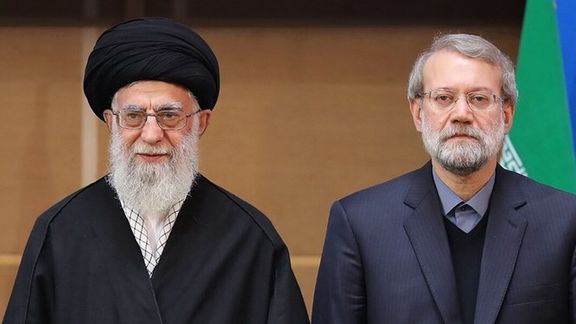
Iranian authorities are preparing to respond to Israel's October 26 attack on the Islamic Republic's military sites, an advisor to Iran's Supreme Leader Ali Khamenei said on Sunday.
"Military officials are planning various strategies to respond to Israel," Ali Larijani said in an interview with the IRGC-affiliated Tasnim News.
Iran has been threatening to retaliate against Israel over the air strikes, which according to Israeli and US officials, knocked out Iran's last three Russian-provided S-300 air defense missile systems and left the country "naked".
Larijani's remarks came shortly after the body of an Israeli rabbi was found in the United Arab Emirates following his abduction by an allegedly Iran-linked cell, giving rise to suspicions that his assassination may be related to Tehran's plan to avenge the Israeli attacks.
Washington's 'shadow war' against Iran
In his Sunday interview, Larijani accused the United States of orchestrating the Israeli actions in the Middle East, including its operations against Iran.
"Israel was counting on the United States' support when planning its operation against Iran, with many US resources and aircraft operating in the region to assist them," he said.
"It can be said with certainty that the Americans are orchestrating events here. But why are they doing this? Because they prefer to engage in a "shadow war," staying out of sight while pushing others into the forefront," the senior advisor to Khamenei said.
He also called on the incoming administration of Donald Trump to stop its support for Israel and prevent what he called the tarnishing of the US image in the region.
"It seems that the United States and its current leadership, which has undergone changes, need to gain a proper understanding of the situation. The officials of the Zionist regime (Israel) are drowning themselves and dragging the Americans down with them, tarnishing the US's reputation in the region," he said.
Trump’s incoming administration plans to revive its “maximum pressure” policy to “bankrupt” Iran’s capacity to support its so-called Axis of Resistance and pursue nuclear development, The Financial Times reported last week.
Trump’s team is preparing executive orders for his first day in office that would tighten existing sanctions and introduce new ones on Iran’s oil exports, the FT report said citing unnamed sources.
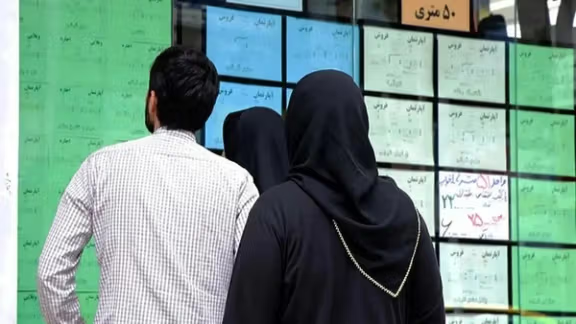
Recent statistics have shown sharp increases in housing rents and other essential costs as inflation soars amid Iran's worst economic crisis since the founding of the Islamic Republic.
Iran’s Statistics Center revealed that rental rates in urban areas rose by approximately 42% in the last 12 months compared to the same period last year. This rate significantly outpaced general inflation by 8.6 percentage points, despite a government-imposed cap of 25% on rent hikes announced in July.
Since July, following the implementation of a cap on rent increases, annual inflation in this sector, as reported by the Statistics Center, has been recorded at 41.4% in August, 41.7% in September, 41.8% in October, and now 41.7% in November.
Throughout these four months, rent inflation has exceeded general inflation. From September to November, rent inflation compared to general inflation has been reported to be higher by 6.6, 7.5, 8.2, and 8.6 percentage points, respectively.
The cost of renting has faced a significant surge since 2020, a combination of housing prices rising and the country's inflation rising since 2019. The government’s strategy of command pricing is not addressing the root causes of inflation, reported the financial newspaper Donya-e-Eqtesad.
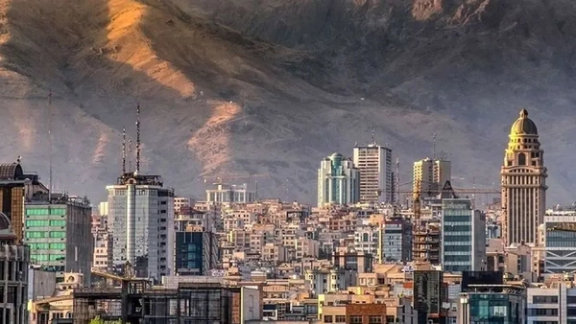
Rental price inflation is part of a wider trend of rising costs in Iran, with recent moves by the government signaling potential price increases in gasoline and automobiles. It comes alongside rising energy costs and insufficient incomes.
The government recently authorized controversial measures to burn mazut in power plants to address the energy crisis, exacerbating environmental and public health concerns. Meanwhile, a resolution by the Economic Council mandates higher gas tariffs to curb overconsumption, further burdening households.
Simultaneously, domestic carmakers Iran Khodro and SAIPA announced price increases of up to 30% for their products, citing financial losses and heavy debts. Critics have called the car market one-sided, accusing the government of supporting monopolistic practices by banning imports.
The situation is reminiscent of the 2019 fuel price protests which saw widespread unrest and the deaths of hundreds of protesters. Economists warn that any rise in fuel prices could trigger inflationary shocks across the economy.
Hossein Raghfar, an economist at Al-Zahra University told Jamaran News: “Raising fuel prices without addressing systemic economic issues will harm everyone and increase tensions."
As the Iranian government struggles to manage rising costs and budget deficits, the consequences of inflation are felt acutely by ordinary citizens with one third of Iranians now living below the poverty line and basic goods like food becoming ever harder to afford.
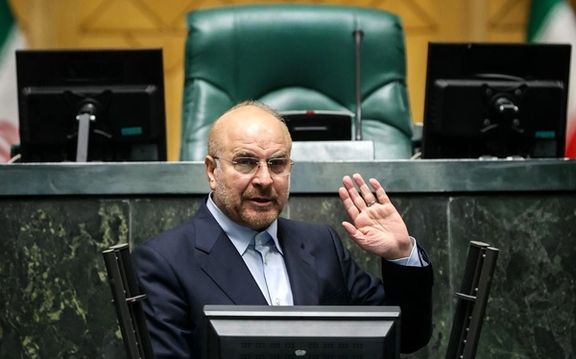
Iran has begun deploying advanced centrifuges which enrich uranium for the country’s nuclear program in response to a resolution by the International Atomic Energy Agency (IAEA) calling for greater transparency into Iran's nuclear activities.
Speaking during an open session of parliament on Sunday, Mohammad Bagher Ghalibaf criticized the resolution, accusing the United States and European nations of using Iran's nuclear program as a pretext for unjustified actions.
He said, "The Islamic Republic of Iran's reciprocal response to this political misuse of the Board of Governors was immediately put into action, and the deployment of a set of new and advanced centrifuges has begun".
The IAEA resolution, backed by major Western powers, expresses concerns over Iran’s lack of cooperation in addressing undeclared nuclear sites and calls for full compliance with its obligations under the Nuclear Non-Proliferation Treaty. Tehran, however, has dismissed these concerns and accused the agency of undermining trust through such decisions.
In a statement, France, Germany, the US and the UK criticized Iran’s response on Saturday, emphasizing the lack of credible peaceful rationale for expanding its nuclear program.
They warned that Tehran’s actions could deepen mistrust and further destabilize diplomatic efforts to address its nuclear ambitions.
“[We] note with serious concern Iran’s announcement that, instead of responding to the IAEA resolution with cooperation, it plans to respond with further expansion of its nuclear program in ways that have no credible peaceful rationale."
They also added that with this resolution, the IAEA Board emphasizes the essential and urgent need for Iran to resolve outstanding issues.
The western nations raised hope that Iran will use the time leading up to this report to provide the necessary information and cooperation to address these concerns. Last year, Iran banned a third of the IAEA's inspectors throwing relations between the two into a crisis.
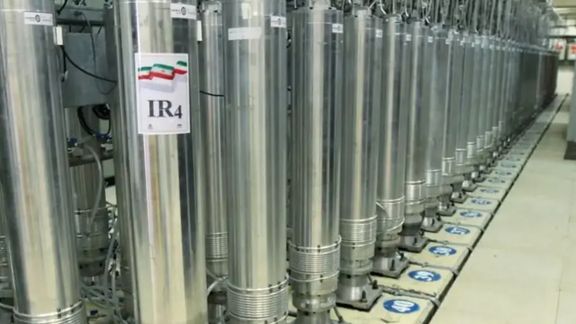
“[This way,] the Agency is able to provide assurance that Iran’s program remains exclusively peaceful, and the Board can close consideration of this matter. If it does not, it will be important that the Board remain engaged to meet the challenge that Iran’s continued refusal to meet its NPT-related nuclear verification obligations would present, including to the credibility of the global IAEA safeguards regime.”
The development comes amid the prolonged deadlock over reviving the 2015 nuclear deal, which Iran claims the resolution jeopardizes.
The IAEA’s calls for compliance and Iran’s defiance highlight the growing divide between Tehran and Western nations. As both sides dig in, the possibility of a diplomatic resolution to the nuclear standoff appears increasingly tenuous.